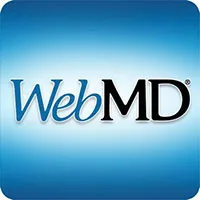
By Ann H. Partridge, MD, MPH, as told to Alexandra Benisek
In the WebMD webinar “Diagnosed Under 40: Breast Cancer’s Unique Impacts on Younger Women,” Ann Partridge, MD, MPH, from the Dana-Farber Cancer Institute and Harvard Medical School, answered viewer questions about breast cancer risk in young people, treatment options, recurrence, and more.
This is dependent on your genetic makeup, the type of breast cancer you had to begin with, and what form of treatment you got. In general, for most young people, the risk of new breast cancer in the other breast is low.
We generally support both young and older people who are not at high risk of a new type of cancer to have breast preservation on the side where they had the cancer, if possible. They can usually keep their other breast unless we find something wrong.
Clinical trials are a very important way for all of us to learn and improve care today and in the future. It’s also helpful for some people to get access to different types of treatment that they otherwise might not be able to have.
I’m a huge fan of joining clinical trials if that’s right for you and if the specific trial makes sense for your disease status. I suggest you talk to your oncologists and other doctors about which clinical trials you may be able to be part of. You can look for clinical trials on clinicaltrials.org, or through advocacy organizations and other websites.
I usually suggest testing for all young women as well as some women over 45. Today, it might be helpful to consider testing for any woman who’s concerned about her future risks.
Testing can also help you find out if your family has a high risk of breast cancer, even without a known genetic mutation in your family.
Generally we don’t recommend that you think about testing for a BRCA1 or BRCA2 mutation until your mid-20s. But if you’re interested earlier, speak with your doctor and a genetic counselor.
There’s not a lot of data on topical estrogens in the vagina for the treatment of vaginal dryness and sexual dysfunction. The data that we do have has mixed results.
For many people, it may be safe but we’re just not sure. So we often suggest trying nonhormonal moisturizers and lubricants first and then only using vaginal estrogens when needed (and using them carefully).
But in some cases, there are exceptions, like in lower-risk patients. It’s a chat to have with your oncologist and gynecologist if you’re having symptoms.
There are a number of different endocrine therapy options for most people. These include both aromatase inhibitors as well as tamoxifen and for younger people. Ovarian suppression is also being used more for higher-risk patients. Tamoxifen alone is also a good choice if your ovarian suppression causes too many symptoms.
And, of course, you can decide to take less than the full 5 to 10 years of endocrine therapy. Longer periods are suggested for higher-risk cases based on your preferences and tolerance. But there’s concern that shorter than 5 years may not get you the full benefit in terms of lowering the risk.
For fear of recurrence, which is a very normal thing for a young breast cancer survivor to feel, there are many strategies. These include deep breathing, exercising, and talking with friends, family, or a trusted therapist or physician.
It’s important that you take care of yourself, eat well, get plenty of sleep, and lower alcohol and caffeine as this can make people more anxious.
Some young mothers can nurse their babies after breast cancer. This may be the case if they’re no longer on treatment or taking a break from treatment and have remaining breast tissue (including the nipple-areolar complex).
But it can be difficult to breastfeed after radiation.
There are a number of resources I recommend. First, talk to your doctor and care team about your own needs and concerns around treatment and supportive care.
Second, most cancer centers have a social worker who can help you with psychosocial concerns. There are also many resources online.
Generally trusted sources include the Susan G. Komen website, Living Beyond Breast Cancer, Young Survival Coalition, the American Cancer Society, Cancer Care, as well as our own Dana-Farber Young and Strong website.
Watch an online replay of this webinar.
Watch other free WebMD webinars on a variety of topics by leading experts.
24World Media does not take any responsibility of the information you see on this page. The content this page contains is from independent third-party content provider. If you have any concerns regarding the content, please free to write us here: contact@24worldmedia.com